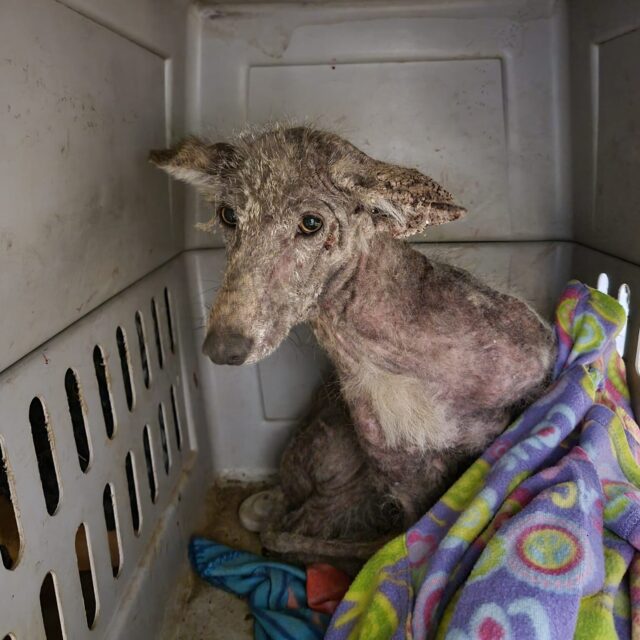When Christina Eyth found paw prints outside her Pennsylvania home, she followed them to find an emaciated animal with terrible mange. Mange, a skin condition caused by burrowing mites, can make an infected animal look unrecognizable.
This particular animal looked sort of dog-like, but she really couldn’t tell what she was looking at. All Eyth knew was that the poor, shivering animal needed saving.

Eyth successfully lured the animal into her basement, where she kept it until a local foster-based rescue, TJ’s Rescue Hideaway, could come to pick it up.
No matter what this animal turned out to be, Eyth just knew it needed help. She told NBC News:
“I peeked outside the door, and that’s whenever I noticed the animal on my left-hand side, and it was so scared and so cold and shivering. All I could think about is ‘This animal needs help.'”
Dog Or Coyote?
After retrieving the animal, TJ’s Rescue Hideaway scanned it for a microchip. No luck. Still baffled by the animal’s appearance, the rescue then transported it to Wildlife Works, a rehab for wild animals.
Wildlife Works began treating the pup right away for its skin condition. Morgan Barron, one of the organization’s rehabilitators, said:
“They transported it here, it got here, and I’m like, I honestly can’t say definitively what it is. But, to err on the side of caution, since they can carry rabies and since it might be a coyote, we can keep it here, get genetic testing done and go from there.”

Obviously, this little guy really resembles a coyote, but he’s also got the temperament of a domestic animal. Plus, as many have pointed out, look at those puppy-like eyes!
“Behavior-wise he’s very timid, very scared, and not aggressive at all which, his behavior makes me lean towards dog,” Barron said.
The organization sent a DNA sample out to determine “what exactly he is.” The results will take 2-4 weeks to come back, and they’re still eagerly awaiting the answers.

If you’re also super curious about the answer, Wildlife Works advised via their Facebook page:
“Please be patient with us as we wait for the results with you. We will share the results with everyone as soon as we get them!”
You can follow them here to get those updates. You can also donate to Wildlife Works to help them continue their important rehabilitation work.
 Toledo, United States.
Toledo, United States.